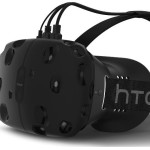 Mobile World Congress in Barcelona has wrapped and this year’s event stood apart from past MWCs in its singular focus on mobile technologies that have yet to arrive.
Mobile World Congress in Barcelona has wrapped and this year’s event stood apart from past MWCs in its singular focus on mobile technologies that have yet to arrive.
While MWC is typically focused on smartphones (and there were plenty at this year’s event) probably the three biggest attention getters were smart watches, mobile payments and virtual reality, all technologies that have yet to prove themselves.
On the smartwatch front, while they weren’t at MWC, most attention is still focused on Apple’s play in wearables. Still, there were some pretty compelling watches at the show, including LG’s Watch Urbane, which is beautiful and comes with its own data plan, so no tethered phone is required to use the watch, a key advantage for this device. Still the watches that I’m most interested in are the new Pebble devices. With expected battery life of ten days, this is a watch you can wear and keep on, as opposed to many of the other smartwatches (including Apple’s), which at best will need to be recharged every night and, in the worst cases, every few hours.
Another noteworthy announcement was the unveiling of Samsung Pay. This mobile payment solution is based on LoopPay, which we highlighted as an alternative Apple Pay and which was subsequently acquired by Samsung. One of the big differentiators for this offering is its ability to work with the standard magnetic card readers already present at many vendors. This means that Samsung Pay should at launch work at a lot more vendors than competing mobile payment systems, which require special NFC hardware at the vendor’s location.
While there were a few virtual reality offerings at MWC, the one that had attendees talking the most was HTC’s Vive. Done in conjunction with the Valve gaming system, the Vive lets gamers actually walk around and move their arms within the virtual world. Hey, gamers might actually get some exercise with this.
Of course, despite the focus on upcoming technologies, there were plenty of new smartphones and tablets at MWC, such as the Samsung Galaxy S6. One that I found interesting was the new Lenovo Vibe Shot phone, which turns a standard convention on its head. While most smartphones are a high-powered computing platform first, and a camera second, the new Lenovo phone is really designed more as a camera, which also happens to have smartphone capabilities. This may actually signal a whole new trend in devices, where phone capabilities become secondary.
Read Aberdeen’s research into mobile technology
This article was syndicated from Business 2 Community: Mobile World Congress Gets Future Focused
More Technology & Innovation articles from Business 2 Community:
- Mobile User Behavior Study: Is Facebook or Email the More Popular Option For App Registration?
- 44 First-Class Mobile Apps for Marketers: Part II
- How Big Data Affects Email Marketing – And How Your Brand Can Capitalize On The Trend
- 3 Things Business Owners Need to Know About WordPress
- What Are The Benefits Of Partnering With An MSP?




